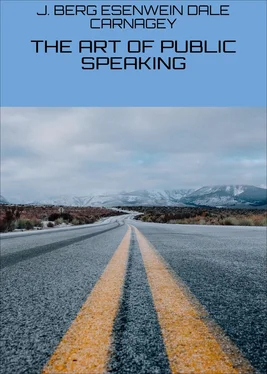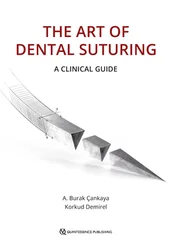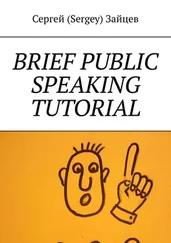deliver them first in the manner condemned in this chapter, and second
with due regard for emphasis toward the close of each sentence.
2. Put into about one hundred words your impression of the effect
produced.
3. Tell of any peculiar methods you may have observed or heard of by
which speakers have sought to aid their powers of concentration, such as
looking fixedly at a blank spot in the ceiling, or twisting a watch
charm.
4. What effect do such habits have on the audience?
5. What relation does pause bear to concentration?
6. Tell why concentration naturally helps a speaker to change pitch,
tempo, and emphasis.
7. Read the following selection through to get its meaning and spirit
clearly in your mind. Then read it aloud, concentrating solely on the
thought that you are expressing--do not trouble about the sentence or
thought that is coming. Half the troubles of mankind arise from
anticipating trials that never occur. Avoid this in speaking. Make the
end of your sentences just as strong as the beginning. _CONCENTRATE._
_WAR!_
The last of the savage instincts is war. The cave man's club
made law and procured food. Might decreed right. Warriors were
saviours.
In Nazareth a carpenter laid down the saw and preached the
brotherhood of man. Twelve centuries afterwards his followers
marched to the Holy Land to destroy all who differed with them
in the worship of the God of Love. Triumphantly they wrote "In
Solomon's Porch and in his temple our men rode in the blood of
the Saracens up to the knees of their horses."
History is an appalling tale of war. In the seventeenth century
Germany, France, Sweden, and Spain warred for thirty years. At
Magdeburg 30,000 out of 36,000 were killed regardless of sex or
age. In Germany schools were closed for a third of a century,
homes burned, women outraged, towns demolished, and the untilled
land became a wilderness.
Two-thirds of Germany's property was destroyed and 18,000,000 of
her citizens were killed, because men quarrelled about the way
to glorify "The Prince of Peace." Marching through rain and
snow, sleeping on the ground, eating stale food or starving,
contracting diseases and facing guns that fire six hundred times
a minute, for fifty cents a day--this is the soldier's life.
At the window sits the widowed mother crying. Little children
with tearful faces pressed against the pane watch and wait.
Their means of livelihood, their home, their happiness is gone.
Fatherless children, broken-hearted women, sick, disabled and
dead men--this is the wage of war.
We spend more money preparing men to kill each other than we do
in teaching them to live. We spend more money building one
battleship than in the annual maintenance of all our state
universities. The financial loss resulting from destroying one
another's homes in the civil war would have built 15,000,000
houses, each costing $2,000. We pray for love but prepare for
hate. We preach peace but equip for war.
Were half the power that fills the world with terror,
Were half the wealth bestowed on camp and court
Given to redeem this world from error,
There would be no need of arsenal and fort.
War only defers a question. No issue will ever really be settled
until it is settled rightly. Like rival "gun gangs" in a back
alley, the nations of the world, through the bloody ages, have
fought over their differences. Denver cannot fight Chicago and
Iowa cannot fight Ohio. Why should Germany be permitted to fight
France, or Bulgaria fight Turkey?
When mankind rises above creeds, colors and countries, when we
are citizens, not of a nation, but of the world, the armies and
navies of the earth will constitute an international police
force to preserve the peace and the dove will take the eagle's
place.
Our differences will be settled by an international court with
the power to enforce its mandates. In times of peace prepare for
peace. The wages of war are the wages of sin, and the "wages of
sin is death."
--_Editorial by D.C., Leslie's Weekly; used by permission._
However, 'tis expedient to be wary:
Indifference, certes, don't produce distress;
And rash enthusiasm in good society
Were nothing but a moral inebriety.
--BYRON, _Don Juan_.
You have attended plays that seemed fair, yet they did not move you,
grip you. In theatrical parlance, they failed to "get over," which means
that their message did not get over the foot-lights to the audience.
There was no punch, no jab to them--they had no force.
Of course, all this spells disaster, in big letters, not only in a stage
production but in any platform effort. Every such presentation exists
solely for the audience, and if it fails to hit them--and the expression
is a good one--it has no excuse for living; nor will it live long.
_What is Force?_
Some of our most obvious words open up secret meanings under scrutiny,
and this is one of them.
To begin with, we must recognize the distinction between inner and outer
force. The one is cause, the other effect. The one is spiritual, the
other physical. In this important particular, animate force differs from
inanimate force--the power of man, coming from within and expressing
itself outwardly, is of another sort from the force of Shimose powder,
which awaits some influence from without to explode it. However
susceptive to outside stimuli, the true source of power in man lies
within himself. This may seem like "mere psychology," but it has an
intensely practical bearing on public speaking, as will appear.
Not only must we discern the difference between human force and mere
physical force, but we must not confuse its real essence with some of
the things that may--and may not--accompany it. For example, loudness is
not force, though force at times may be attended by noise. Mere roaring
never made a good speech, yet there are moments--moments, mind you, not
minutes--when big voice power may be used with tremendous effect.
Nor is violent motion force--yet force may result in violent motion.
Hamlet counseled the players:
Nor do not saw the air too much with your hand, thus; but use
all gently; for in the very torrent, tempest, and (as I may say)
whirlwind of your passion, you must acquire and beget a
temperance, that may give it smoothness. Oh, it offends me to
the soul, to hear a robustious periwig-pated fellow tear a
passion to tatters, to very rags, to split the ears of the
groundlings[2]; who, for the most part, are capable of nothing
but inexplicable dumb show, and noise. I would have such a
fellow whipped for o'er-doing Termagant; it out-herods Herod.
Pray you avoid it.
Be not too tame, neither, but let your discretion be your tutor:
suit the action to the word, the word to the action; with this
special observance, that you o'erstep not the modesty of nature;
for anything so overdone is from the purpose of playing, whose
end, both at the first, and now, was, and is, to hold, as
'twere, the mirror up to Nature, to show Virtue her own feature,
Scorn her own image, and the very age and body of the time his
form and pressure. Now, this overdone, or come tardy off, though
it make the unskillful laugh, cannot but make the judicious
grieve; the censure of the which one must, in your allowance,
o'erweigh a whole theater of others. Oh, there be players that I
Читать дальше












